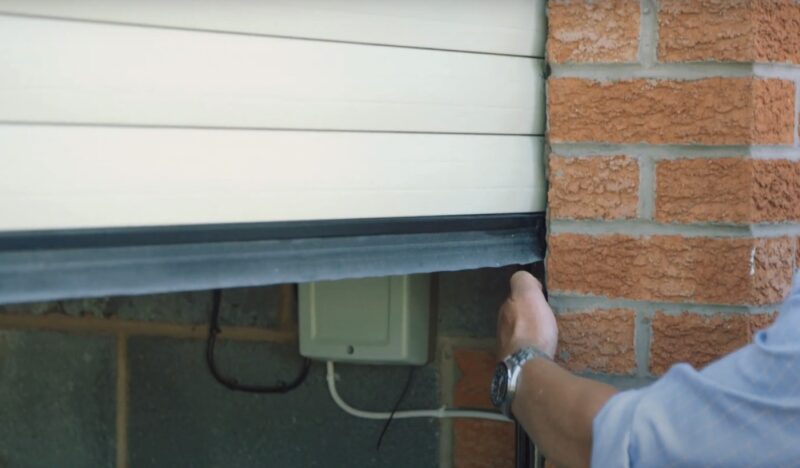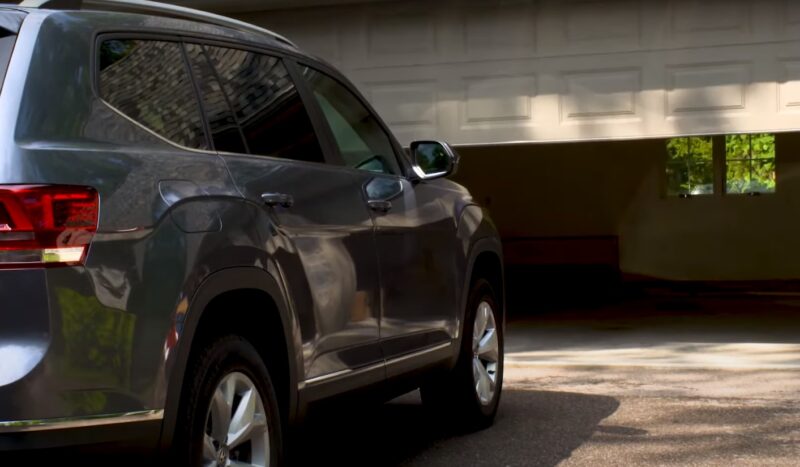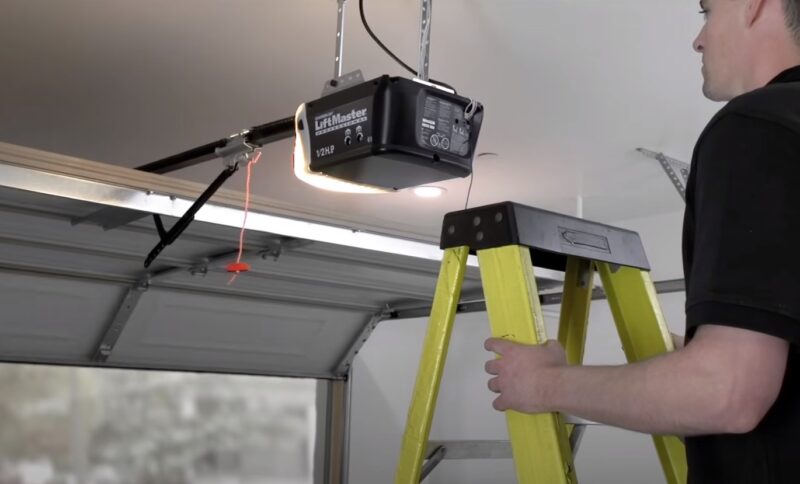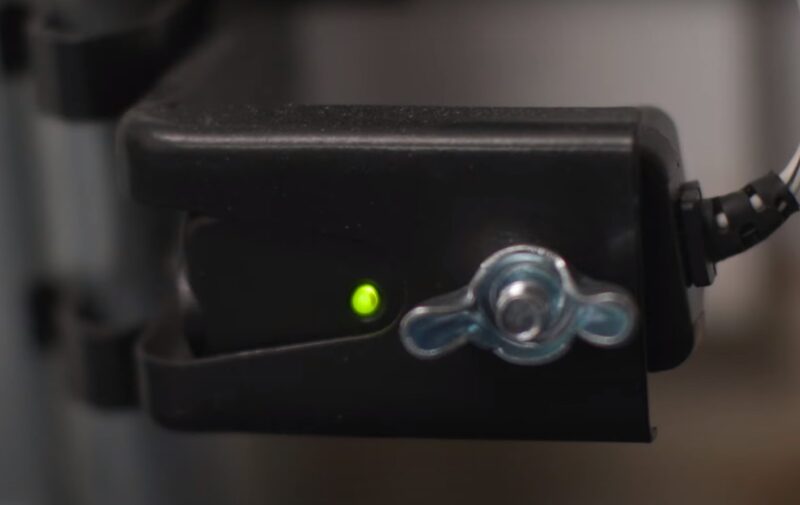Sunlight exposure significantly impacts garage door sensor functionality, devices crucial for safety and efficiency in automatic garage door systems. Located at the base of the door, sensors employ infrared technology to detect obstacles, ensuring the door reverses if something or someone obstructs its path.
However, strong sunlight can interfere with the infrared signal, leading to malfunctions such as doors refusing to close or opening unexpectedly.
Key Takeaways
-
Sunlight can disrupt sensors, but adjusting positions, creating shade, or tweaking sensitivity can mitigate issues.
-
Regular maintenance and professional advice are crucial for ensuring smooth and safe operation.
How Does Sunlight Interfere with Sensors?

These lenses are engineered to detect any obstruction in the path of a closing door, using an infrared beam that spans the width of the garage door opening. When an object interrupts this beam, it signals the garage opener to stop and reverse the door to prevent accidents.
However, direct sunlight can disrupt this finely tuned safety mechanism in several ways.
Direct Interference
The most common issue arises when direct sunlight shines onto one of the lenses. The intense light can mimic the signal of an obstruction, leading to a confusion. This is because the infrared light used by the lenses operates at wavelengths close to the visible spectrum, which can be mimicked by the sun’s rays.
As a result, the garage door may refuse to close, thinking there is an obstacle when there is none. On the other hand, you could also face a problem where doors refuses to open. There are several ways to open them manually.
Reflection and Refraction
Sunlight can also cause interference through reflection and refraction. Surfaces near the garage door, such as windows or glossy exterior finishes, can reflect sunlight directly into the sensor. Similarly, the refractive effects of sunlight through glass or other transparent materials can alter the path of the infrared beam, leading to false detections of obstructions.
Thermal Expansion
Another indirect way it affects sensors is through thermal expansion. Prolonged exposure heats up the components of the sensor, potentially altering their physical dimensions and, consequently, their alignment. Misaligned sensors may fail to detect the infrared beam correctly, causing the door to act erratically.
Material Degradation
Continuous exposure can degrade the materials of the casing over time. UV rays can make plastic housings brittle, leading to cracks through which direct sunlight can enter and interfere with the sensor’s operation. This degradation not only affects the immediate functionality but can also shorten its overall lifespan.
What Issues It Can Cause and How to Resolve Them?

Sunlight interference with garage door sensors can lead to a range of issues, affecting the convenience and safety of using an automatic garage door. Here are some common problems caused by sunlight interference and strategies for resolving them.
Door Refuses to Close or Reverses Unexpectedly
The most common issue is the garage door refusing to close or reversing without any visible obstruction. This typically occurs when direct sunlight interferes with the sensor’s infrared signal.
Solution
- Adjust Position: Slightly reposition them away from direct sunlight while ensuring they still align properly.
- Create Shade: Install a small shade or shield to block direct sunlight without obstructing the infrared beam.
- Use Filters: Consider applying filter caps designed for lenses to diminish the impact of bright sunlight.
Erratic Door Behavior
The garage door may stop midway, fail to respond to remote commands, or behave erratically due to inconsistent sensor signals caused by sunlight.
Solution
- Check and Adjust Sensitivity: If possible, adjust the garage door opener’s sensitivity settings to make it less susceptible to sunlight interference, but still capable of detecting real obstructions.
- Regular Maintenance: Ensure they are clean, properly aligned, and in good condition. Dust and dirt on the lenses can worsen sunlight interference.
General Strategies
- Professional Assistance: If DIY adjustments do not resolve the issues, it’s advisable to seek help from a garage door technician. Professionals can offer solutions such as relocating lenses to a more shaded area or upgrading to newer models that are less sensitive.
- Periodic Checks: Regularly inspect the alignment and condition of the sensors. Minor misalignments can significantly affect performance, especially in the presence of strong sunlight.
Are There Preventive Measures?
To mitigate the impact on sensors and prevent future issues, homeowners can adopt several preventive measures.
Proper Placement
When installing new sensors or replacing old ones, consider the path of sunlight throughout the day. Positioning sensors in locations less likely to receive direct sunlight can prevent many common issues related to sunlight interference.
Protective Covers
Install protective covers or shades specifically designed for garage door sensors. These covers can shield sensors from direct sunlight without interfering with the infrared signal, offering a simple yet effective preventive measure.
Regular Maintenance
Incorporate checks into regular garage door maintenance routines. Cleaning the lenses and checking for proper alignment can prevent issues caused by sunlight interference. Dust and debris on the lenses can exacerbate the effects of sunlight, making regular cleaning essential.
Can We Adjust the Sensitivity?

Most modern garage door openers allow you to tweak how sensitive the sensors are to obstructions. If your door acts up because of sunlight, dialing down the sensitivity might help. However, it’s a bit more complex. You want to avoid making the sensors so dull that they miss actual obstacles.
If the manual for your opener is handy, it should guide you through the process. If not, a quick online search or a call to the manufacturer can get you the steps.
FAQs
Why does the garage not close during the day?
The sunlight may interfere with the sensor beam and prevent the garage door from closing. Shading the sensor or adjusting its angle may solve this problem.
Why is the garage door sensor not sensing?
The sensor may not sense anything because it is misaligned, blocked, dirty, wet, or damaged. Checking and cleaning the sensor, and making sure it is aligned and unobstructed, may fix this issue.
How do I know if my garage door sensor is bad?
One way to know if the garage door sensor is bad is to test it with a multimeter. A multimeter can measure the voltage and resistance of the sensor and indicate if it is working properly or not.
What is the life of the garage door sensor?
The life of the garage door sensor depends on various factors, such as the quality of the sensor, the frequency of use, the weather conditions, and the maintenance. Generally, a garage door sensor can last for about 10 years before it needs to be replaced.
Summary
Sunlight exposure can indeed affect garage door sensors, causing them to malfunction in various ways. However, with a bit of knowledge and effort, these issues can be managed or even prevented.
Adjusting sensor positions, creating shade, and tweaking sensitivity settings are practical steps homeowners can take to ensure their garage doors operate smoothly throughout the year. Regular maintenance and consulting with professionals when necessary can also go a long way in avoiding the hassles caused by sunlight interference.
